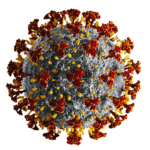The recent approval of the first COVID vaccines has sparked debates about the morality of taking vaccines made with the help of cell lines originally derived from the tissue of aborted babies, and about the morality of using those cell lines more generally. The COVID vaccines that have been approved or are pending approval all use HEK 293—a cell line thought to be produced from the kidney tissue of a fetus aborted in 1972—in development, production, and/or testing. (Though there is some uncertainty about HEK 293’s origin, I will presume here that it was derived from aborted fetal tissue, as the evidence seems to favor that claim.) As a result, many pro-life leaders and organizations like Personhood Alliance and Children of God for Life argue that the vaccine is unethical and that we should to refuse to take it.
In an incendiary critique of the United States Conference of Catholic Bishops (USCCB) statement that indicated that it is permissible to take the vaccines despite their connection to abortion, pro-life leader Abby Johnson refers to the vaccines as “born on the backs of aborted babies,” and calls the USCCB “too cowardly to stand up and say no more.” Bishops Athanasius Schneider and Joseph Strickland issued an equally radical statement referring to the currently available vaccines as “a violation of the God-given Order of Creation” that are made possible by “murder-based technology.”
Janet Smith offers a more measured analysis, recognizing that it is not intrinsically immoral to take the vaccine, and that the “enormous” benefits “arguably balance any connection the vaccines have with abortion, especially if we intensify our objections to abortion and the use of cell lines from abortion.” She nonetheless urges those who are not on the front lines or at high risk of dying from COVID-19 to refuse to take the vaccine in order “to give witness to the humanity of the unborn.”
The USCCB statement and the statement from the Vatican’s Congregation for the Doctrine of the Faith (CDF) are more reasonable. Both argue that taking any of the available vaccines is morally permissible, and the USCCB even suggests that it may be a duty, claiming that “being vaccinated safely against COVID-19 should be considered an act of love of our neighbor and part of our moral responsibility for the common good.” Nonetheless, both the USCCB and the CDF consider the vaccines and the “cell lines of illicit origin” that were used to develop, produce and/or test them to be “morally compromised.” They accordingly argue that there is a duty to encourage the development of an “ethically acceptable” vaccine (made without the help of HEK 293 or similar cell lines), and to change the practice of routinely using these “morally compromised” cell lines in biomedical research.
Start your day with Public Discourse
Sign up and get our daily essays sent straight to your inbox.
Elsewhere I have already made the case that, though I respect the concerns of those who have argued the contrary, pro-lifers should not have any moral qualms about taking any of the available vaccines. The reasons, in brief, are as follows: HEK 293 is an immortal cell line that reproduces itself indefinitely, and is biologically far removed—biologically modified and now countless generations distant—from the original fetal tissue used to develop it. Consequently, the use of HEK 293 or similar cell lines in no way perpetuates the grave injustice of abortion or implies approval of abortion, any more than the use of the anti-malaria drug chloroquine (developed by Nazi scientists conducting grossly immoral experiments in concentration camps and mental institutions) perpetuates unethical experimentation or implies approval of it. Indeed, as Fr. Matthew Schneider notes, using a vaccine made with the help of HEK 293 has less connection to the ongoing evil of abortion than other actions we engage in on a regular basis, such as doing business with the many companies that donate money directly or indirectly to Planned Parenthood, including Nike, Heinz, Energizer, Clorox, Facebook, JPMorgan Chase, Bank of America, CVS, Walmart, Liberty Mutual, Aetna, and hundreds of others.
“Morally Compromised”?
What I want to call into question here is the common claim that the COVID vaccines and cell lines like HEK 293 are “morally compromised,” along with the consequent judgment that pro-lifers should insist that an “ethically acceptable” vaccine be produced and that such cell lines more generally cease to be used. What does it mean to say that these vaccines and cell lines are “morally compromised”? If it simply means that they have a remote and indirect downstream causal connection to an abortion that occurred fifty years ago, then the claim is true, but trivial. Given the ubiquity of HEK 293 in basic science research (and in the production of molecular reagents used for research), it is likely that almost every development in biomedical research over the past several decades has some connection to it.
Further, as already noted, an enormous number of the products and services we routinely purchase have a direct or indirect connection to abortion—often much more direct than COVID vaccines or HEK 293, insofar as they actually facilitate future abortions rather than merely being an indirect benefit of an abortion that happened long in the past. In other words, unlike taking the COVID vaccine or using HEK 293—which involves benefiting from a past evil but not actually cooperating with a present or future evil—buying these products does constitute cooperation with the evil of abortion (though such remote material cooperation with evil is generally considered permissible, and is in fact largely unavoidable in contemporary society). And though a few may make some effort to avoid buying from or investing in such companies when feasible, even the most zealous pro-lifers are not labeling Nike running shoes or Energizer batteries “morally compromised.”
Perhaps these products are not viewed in themselves as “morally compromised” because, by contrast with the COVID vaccines and HEK 293 cells, their development was not made possible by a past abortion, and has no physical connection to a past abortion. So let’s consider some more closely analogous examples.
The use of HEK 293 or similar cell lines in no way perpetuates the grave injustice of abortion or implies approval of abortion, any more than the use of the anti-malaria drug chloroquine (developed by Nazi scientists conducting grossly immoral experiments in concentration camps and mental institutions) perpetuates unethical experimentation or implies approval of it.
Most of the railroads in the southern part of the United States were built with slave labor, but despite universal condemnation of the injustice of slavery, no one labels those railroads “morally compromised,” urges people not to ride them, or claims that there is a moral imperative to lay down new railroad tracks so that we no longer need to use the “morally compromised” ones. Likewise, while the popular acne medication Retin-A was developed by dermatologist Albert Kligman with the help of unethical on black prisoners—including intentionally inoculating them with infectious agents—no one calls Retin-A “morally compromised,” urges people not to use it, or claims that there is a moral imperative to ignore the groundbreaking knowledge gained by Kligman and reinvent Retin-A (or other products developed with the help of his research) through independent, ethically conducted studies. Yet these products were made possible by grave injustices and (at least in the railroad case) retain a physical connection to those injustices. So why this singling out of cell lines like HEK 293 and their products as uniquely “morally compromised,” and considering their use so much more morally suspect than the use of analogous products?
One morally relevant difference between the railroad and Retin-A cases and the case of cell lines made with aborted fetal tissue or products made with their help is that, while slavery and Kligman’s research practices are almost universally condemned in our culture, abortion unfortunately is not. Yet this difference, while relevant in other respects (as I explain below) does not have anything to do with whether or not the products themselves are “morally compromised.” Indeed, the downstream causal connection between slave labor and the railroads—as well as between unjust research practices and the development of Retin-A—is much more direct than the connection between abortion and the development of HEK 293.
The point of the slave labor was precisely to build the railroads, and the point of Kligman’s research was precisely to develop skin treatments, while the mother’s decision to abort had nothing to do with the goal of developing a cell line. In other words, what motivated the use of slave labor and Kligman’s research practices were (at least in part) precisely the benefits we enjoy when riding the railroads or using Retin-A. But the mother’s motivation to abort has no connection at all to the benefits we receive from HEK 293 and its products. (It is true that the researchers’ unethical procurement of aborted fetal tissue does have a direct connection to the benefits we are receiving, but the primary evil in this case is the abortion, not the use of fetal tissue for research, which in itself is no more morally suspect than the use of any other human tissue for research, or even the use of human tissue without consent, which is morally wrong but much less seriously so than abortion.)
Ultimately, it seems to me that HEK 293 and its products are unreasonably singled out as “morally compromised” because there is an emotional repugnance to the idea that some tissue from the aborted fetus is physically “in” the cell line or “in” the vaccine, while the enslaved are not “in” the railroads and the black prisoners are not “in” the Retin-A. Yet apart from being largely biologically inaccurate—there may be a few DNA fragments from the original aborted fetus in current HEK 293 cells, but the line is biologically far removed from the original fetal tissue—the presence of remnants of the original fetal tissue in HEK 293 cells is morally irrelevant.
To call a cell line, a vaccine, a railroad, a medication, or any other physical thing morally compromised is simply a category mistake, because good and evil are characteristics of the human will, of human choices and actions, not of physical things.
Consider the case of an infant’s heart made available for transplant because the baby was murdered by her abusive mother. Should we consider the heart “morally compromised”? Should we tell parents of a baby in desperate need of a heart transplant that they should not use the “morally compromised” heart because it comes from a baby brutally murdered by her mother? The answer to these questions is no. The parents should not hesitate to use the heart (presuming that proper consent for the transplant has been obtained, perhaps from the child’s father or grandparents), because the evil is in the murderer’s will, not in the body of the victim. Respectful use of parts of that body to save another’s life is morally right as long as the choice to do so does not contribute to future murders or lead one to share in or approve of the evil will of the murderer. While there is a small risk that benefiting from the murder will corrupt the parents’ character by weakening their condemnation of it, this risk can be overcome if they make the effort to inwardly distance themselves from and reject the murder despite the great benefit they gained from it. And the good achieved in saving the life of their child is significant enough to make that risk proportionate.
One could apply the exact same analysis to the use of the COVID vaccines, and to the use of HEK 293 more generally. Neither the vaccines nor the HEK 293 cells are morally compromised, because physical things are neither moral nor immoral. Rather, the choice to abort the baby whose kidney tissue was used to create HEK 293 was morally wrong, as were the actions of those who carried out the abortion, and those of the researcher who most likely cooperated both formally and materially with the abortion provider in order to procure the tissue. But these evils—grave as they are—are all long in the past. Nothing we do now can change them.
Pro-life leaders should instead focus their energies on working to end ongoing research practices that do violate the dignity of the unborn. We should, for instance, take a strong stance against the use of new aborted fetal tissue for research.
Now that HEK 293 exists and has become one of the most widely used cell lines for basic science research, is there any moral duty to avoid using it? I believe that the answer is no, or at least that the duty is no stronger than the duty not to use information derived from Kligman’s experimentation, and is probably weaker than the duty not to buy Energizer batteries, hold a Chase bank account, or engage in the multitude of other daily activities that actually constitute remote cooperation with evil—duties that are so weak and easily defeasible that in common language we would not call them duties at all.
Because abortion—unlike slavery and the exploitation of prisoners for medical research—is unfortunately an ongoing injustice, when benefiting indirectly from a past abortion by availing ourselves of the COVID vaccine or the HEK 293 cell line, we need to take extra care to give witness to the dignity of the unborn and to condemn the grave evil of abortion. But protesting against the use of HEK 293 and other historic cell lines originally made from aborted fetal tissue, the use of which does not perpetuate the injustice of abortion in any way or imply approval of it, does nothing to help the important cause of protecting the lives of the unborn. If anything, the pro-life cause could actually be harmed if it becomes publicly connected to the hampering of vaccination efforts necessary to curb the rising COVID death toll, achieve herd immunity, and restore social and economic life.
Pro-life leaders should instead focus their energies on working to end ongoing research practices that do violate the dignity of the unborn. We should, for instance, take a strong stance against the use of new aborted fetal tissue for research, or of any activity that perpetuates the grave injustice of abortion and the grisly but common practice of selling fetal body parts, and to promote protocols for procuring fetal tissue in ethical ways, from spontaneous miscarriages or non-viable pre-term births. Likewise we should continue to protest the creation and use of human embryos for research, and encourage ethical alternatives like adult stem cells, umbilical cord cells or induced pluripotent stem cells. At the same time, we should applaud the lifesaving work of vaccine developers and remind all people of good will that vaccination is not only or primarily about individual protection, but is ultimately an act of charity toward the most vulnerable and a crucial contribution to the common good.














